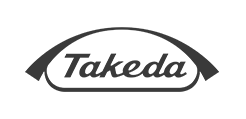NCD Program Database
Health needs and challenges
The past decade has seen major public health gains and scientific breakthroughs in the discovery of new medicines, but across the world, many people still lack access to the treatment and medicines they need, especially for very severe diseases including many forms of cancers and other NCDs. NCDs are hard to diagnose, treat and manage and have significant affordability barriers – complex and rare diseases require highly innovative medicines, often without alternatives, and the treatment can be lifelong. To address these affordability barriers, in 2017, we pioneered our PAPs, to ensure our innovative and potentially life-saving medicines reach as many patients as possible, all around the world.
Before the launch of Adcetris®, there were no treatment options for patients with relapsed and refractory Hodgkin’s Lymphoma (RR HL) or relapsed and refractory systematic anaplastic large cell lymphoma (RRsALCL) in many developing markets.
How the program and partnership activity address the needs and challenges
Through an independent delivery partner, we have adopted an independent and confidential means-based assessment tool to assess patients’ ability to contribute to their medication costs, and then determine the appropriate individual payment scheme for each patient. This ensures patients pay only what they can afford, and are able to complete their entire course of treatment even if they cannot pay for it in full. Through our delivery partner, we also provide personalized support including ongoing follow-up from program staff to ensure adherence to their treatment plan and their physician’s recommendations – improving the quality of care and efficacy of the treatment.
Takeda’s PAPs are sustainable so our innovative medicines reach as many patients as possible, and are tailored to each country to address a country’s economic context and local healthcare provisions. They use different collaborative models where patients, Takeda, and at times local authorities, foundations, medical associations, charities and other parties, share the cost of treatment. In select cases for patients with no ability to pay, we explore routes for them to access medicines included in our PAPs, through additional financial support from local medical societies, charities, and NGOs.
By addressing affordability barriers for patients diagnosed with relapsed and refractory RR HL or RR sALCL, the program is in turn optimizing care and treatment benefits, and reducing the burden of RR HL and RR sALCL in terms of its impact on quality of life and mortality in a way that is sustainable over the long term.
Across all countries, Takeda’s distributors support the logistics and delivery of medication within the health system.
|
SDGs
4
|
|
NCDs
1
|
|
NCD Targets
1
|
|
Regions
6
|
|
Strategies
3
|
|
Countries
13
|
The data for this program has been reviewed by both the companies and the Access Observatory team.
https://www.accessobservatory.org/




